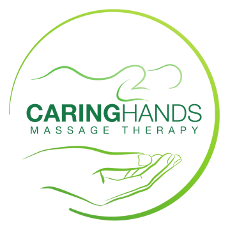Trigger points are a very common source of pain and they can often prevent us from conquering our daily tasks. What are trigger points and how can a registered massage therapist (RMT) help you? Read below to find out.
What are trigger points?
Myofascial trigger points, or more commonly known as “muscle knots,” are small patches of tightly contracted muscles. They decrease circulation within the muscle, which can cause muscle pain, spasms, and contractions. They are often tender to touch and can decrease range of motion and flexibility. They can also affect muscle strength, and can result in pain in other parts of the body such as tension headaches.
There are many possible causes for trigger points. A common cause is repetitively using the same body part, such as performing activities like gardening or house maintenance projects. Additionally, carrying sustained loads such as heavy lifting can also develop trigger points. Other causes include: poor posture due to poorly designed furniture or extended periods of sitting; muscle clenching due to mental stress; and inactivity of a certain muscle group.
What is Trigger Point Therapy and how does it work?
If trigger points are causing you discomfort and preventing you from performing your daily tasks, you can consider incorporating Trigger Point Therapy into your wellness routine. Trigger Point Therapy is specifically designed to alleviate symptoms caused by trigger points. A professional RMT unlocks the muscle contraction by applying cycles of isolated pressure onto the trigger points. This technique is called “Trigger Point Pressure Release.” After receiving treatment, patients would typically expect soreness for one to two days. An experienced RMT can identify the intensity and the exact location of different trigger points and determine which specific massage techniques to use in order to help the patient achieve significant results.
Benefits of Receiving Trigger Point Therapy
Patients can experience many benefits after receiving Trigger Point Therapy. Receiving Trigger Point Therapy on a regular basis can assist patients in managing pain from chronic injuries. Many patients experience pain relief during the first treatment. In addition, Trigger Point Therapy is designed to be highly customizable to individual need. For this reason, an RMT can help a patient determine the best treatment he/she needs in order to achieve the best result.
Trigger points are very common and can be naturally treated through Trigger Point Therapy by an experienced RMT. If those little muscle knots are bothering you, consult a professional RMT and give Trigger Point Therapy a

